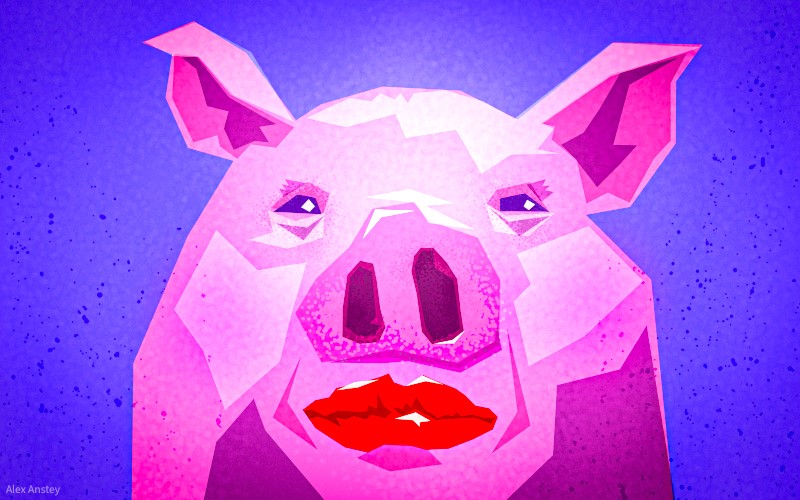The Morrison government’s country contingent knows how to count. If there’s a dollar to dole out to the regions, they will ensure that 80 cents of it goes to the people they won over or want to win over. While the panel may have acted within the letter of the funding guidelines, they have racked up a massive ethical deficit. Special correspondent Jommy Tee reports.
A detailed analysis by Michael West Media (MWM) reveals that the Morrison government redirected a staggering $105 million of grants from round 3 of the Building Better Regions Fund (BBRF) marginal seats and pet projects ahead of the last election.
The fund is overseen by a secretive ministerial panel, and is meant to be an open and competitive program where grants are selected on merit, unlike the totally politicised grants such as the Community Development Grants and Commuter Car Park grants.

The BBRF ministerial panel took it upon themselves to use the selection process for blatant electioneering purposes. The ministerial panel is the decision maker in awarding the grants and their decision is final.
The total funding for round 3 was $204 million, hence the level of political manipulation meant that half of the total funding was given to projects that scored and ranked far lower than many other more worthy higher rated applications.
Orange is the new black
The departmental advice for round 3 was given to the panel in mid-February 2019 via a colour-coded spreadsheet with recommended projects highlighted green. Green applications scored highly against the merit criteria and would return superior value for money. Non-recommended projects were highlighted in orange, meaning that while they met the criteria they scored lower and were not preferred.
A third category, coloured pink, contained applications assessed as not being value for money – no applications from the pink list were elevated by the panel.
No electorate information was provided on the spreadsheet, yet the ministerial panel still found a way to engineer an outcome that targeted marginal seats and safe Coalition seats (see below).
After the panel deliberated, a cabinet submission was prepared and the grants started being announced in early March 2019, conveniently just before the last election.
The redirected grants, approved by the panel and the cabinet, provided plenty of photo opportunities for Coalition members and candidates just before the election.
In total, despite being massively over-subscribed in the recommended list, the panel went against departmental advice and elevated 112 projects worth $105 million from the orange list, displacing many higher-ranking projects from the green list.
The ABC previously revealed the number of grants but the dollar figure of the ministerial intervention was unknown.
Unveiling the Pork Panel
The membership of the ministerial panel that oversaw the political interference in round 3 has also been kept a closely guarded secret, redacted from FOI documentation.
However, it was confirmed at an estimates hearing that the round 3 ministerial panel consisted of National Party ministers Michael McCormack, Bridget McKenzie and Matt Canavan; and Liberal Party ministers Simon Birmingham, Sussan Ley and Steve Irons.
McCormack chaired the panel. The conduit back to the Prime Minister’s office was Irons, the assistant minister to the prime minister at the time.
While the panel may have acted within the letter of the guidelines, it appears to have engaged in the unethical practice of promoting lower ranked applications at the expense of more meritorious ones for base political purposes.
Many of the worthy regional projects that were dumped would be none the wiser that their efforts were rolled by a collection of ministers purporting to represent the best interests of regional Australia.
It is unclear whether members of the ministerial panel recused themselves from discussions when approving grants in either their own electorates or, in the case of senators, their respective states. It is understood that departmental officials were not a party to any of the deliberations of the ministerial panel – a closed door on transparency.
In response to a Senate Estimates question on notice regarding conflict of interest and recusals, officials advised that McCormack vetoed the release of relevant material, claiming it would not be in the public interest to disclose the information. To do so could potentially reveal the deliberations of the cabinet, which are confidential.
The Commonwealth Grant Rules and Guidelines require that where a minister approves a proposed grant in his or her own electorate, the minister must write to the Finance Minister advising of the details. It is understood that this has been completed for all rounds of the BBRF.
How big is my slice of the pie?
The 112 grants elevated by the panel clearly demonstrated that the focus was twofold: seeking to win or hold marginal seats; and to provide dollops of pork-barrelling in safe seats.
National Party seats received a fat $56 million of grants from the orange list, Liberal-held seats got a large $38.3 million, Labor seats a meagre $7.7 million and the crossbench seats got $3.7 million.
The Coalition were the beneficiary of $84.2 million of the $105 million of grants that ministers promoted over more worthy applicants.
Marginal seats
A total of 49 of the 112 promoted grants were delivered to marginal seats. The value of those grants was $33.9 million.
The motivation for delivering these grants was not altruism but was a means of enhancing electoral prospects at taxpayers’ expense.
The following Coalition-held marginal seats were the recipients of funding:
• Cowper NSW ($7.3 million across 4 grants)
• Leichhardt, Qld ($6.2 million across 3 grants)
• Dawson, Qld ($4.5 million across 4 grants)
• Corangamite, Vic ($2.4 million across 7 grants)
• Dickson, Qld ($2.2 million in 1 grant)
• Flynn, Qld (1.8 million across 4 grants)
• Gilmore, NSW ($0.9 million across 2 grants)
Marginal seats held by the Labor Party and independents that the government was targeting included:
• Herbert, Qld ($3.1 million across 2 grants)
• Eden-Monaro, NSW ($2.4 million across 5 grants)
• Bass, Tas ($0.6 million across 3 grants)
• Lyons, Tas ($0.2 million across 2 grants)
• Indi, Vic ($1.3 million across 5 grants)
• Mayo, SA ($0.3 million across 2 grants)
“Announceables” and underhand tactics
The process for announcing the BBRF grants in marginal seats followed the well-trodden path of other rorted grants programs – sideline the Labor and independent incumbent from any announcement and allow LNP candidates to bathe in the reflected glory of corrupted pork-barrelling.
This was nowhere more evident than in the seat of Indi. The independent member, Cathy McGowan, did not contest the 2019 election, so the government saw it as an opportunity to win back the seat.
The underhandedness started when Senator Bridget McKenzie, no stranger to administering rorted grants programs, bobbed up in the electorate in early March 2019 to announce a truckload of BBRF grants, flanked by the local National Party candidate, Mark Byatt, and local Liberal party candidate, Steve Martin.
A video of McKenzie’s press conference blatantly campaigning is still available online. It refers to the following grants, amongst others, to the Yackandandah Pistol Club, and the Alexandra Scouts. Both grants were part of the orange list.
Brazenly, McKenzie waxed lyrical about the open and competitive nature of the BBRF, failing to disclose she was part of the panel that deliberately redirected funding away from more worthy applications to marginal seats.
McGowan was justifiably so incensed by McKenzie’s tactics that she wrote to the Auditor-General asking the Audit Office to investigate the behaviour of the government ministers and the department surrounding the awarding and announcement of round 3 BBRF grants.
The Auditor-General could not immediately conduct an investigation but is currently auditing the BBRF with a report due for release in May next year.
Safe seats: Get some pork on your electorate fork
Noting the Morrison government was widely expected to lose the last election, an overlooked aspect of the rorted grants programs was the election may well have been the final throw of the dice to indulge in a feeding frenzy in safe government-held electorates.
To this end two members of the ministerial panel gorged themselves on grants.
The chair of the panel, McCormack, delivered five grants worth $6.6 million for his Riverina electorate (three of those grants worth $6.5 million were lifted from the orange list, including a single $5.4 million grant to upgrade Temora Airport).
Sussan Ley did as well as McCormack, nabbing six grants ($6.9 million) for her Farrer electorate. The orange list provided two grants ($4.9 million) with the whopper being $4.5 million for the Griffith Regional Sports Precinct.
Other safe seats that salivated on orange coloured grants included the Liberal seats of Wannon, Barker, Hume, Monash, Canning and Forrest – a total of 21 grants worth $18.1 million
The other National Party seats that entertained gluttonous grants were Maranoa, New England, Wide Bay, Gippsland, Parkes, Flynn, Calare and Groom – a total of 13 grants worth $34.7 million.
To bastardise a Morrison saying: If you have a go, you might get a go, but will it be a fair go? In the case of round 3 of the BBRF the answer is a resounding no.
If round 3 is anything to go by the Auditor-General’s audit has a lot to look at and to work with.
The next instalment in this series will look at the grants elevated by the ministerial panel under round 4.
Jommy Tee is a long-time career public servant, having worked in the policy development field for 25+ years as well as an independent researcher interested in politics, current affairs, and Nordic noir.

